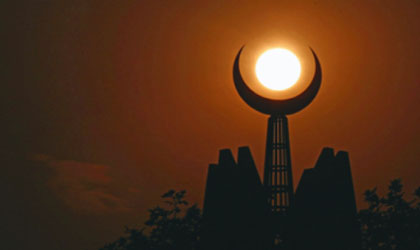History and meaning of Ashura.
Muharram, the first month of the Muslim year holds enormous importance for Muslims all around the world. This month provides an opportunity to Muslims to reconnect with past that will always be present for them. This is the triumph of justice from tyranny. It is a date which celebrates the victory of the prophet Musa, Moses, upon Pharaoh, the oppressor and the persecutor of the children of Israel. This date also commemorate the day Allah saved from the flood the prophet Nuh, Noah and his people in the ark.
If we look back at the origin of Ashura, scholars have identified that it is not just a holiday for Muslims but, Ashura was a Jewish holiday commemorating the exodus of people of Israel from Egypt after the issuance by the Prophet Moses. In 622, the Prophet Muhammad (PBUH) saw Jews fasting on this day to commemorate the victory of Moses over Pharaoh and his men. But to avoid confusion between Jewish and Muslim celebrations, he decided that fasting should be observed for not one but two days, the 9th and 10th of Muharram. Hence this is the origin of name “Achara” which means 10 in Arabic.
It is considered to be one of the most important holidays of the year for Shiites. For Shiites, Ashura is a far more significant celebration. We can even say that this is the most important celebration of the year for this minority which represents between 9 and 11% Muslims. Ashura are thus two days of mourning commemorating the martyrdom of Hussein, the third imam of the Shiites, assassinated and beheaded in Karbala in 680. On this occasion, the Shiite fast and organize large processions that reenact the martyrdom of the second son of Ali and his family during the siege of Karbala by his Umayyad enemies, the head of the Islamic caliphate. In some countries predominantly Shiite regions such as Iraq and Iran, and even in countries with Shi’ite minority as Lebanon or Pakistan, these processions and reenactments are sometimes the opportunity to self flagellation acts very impressive. In Iran, Ashura is celebrated by Tazieh, a theatrical genre which replays the martyrdom of Hussein (illustration).
For Sunnis, the celebrations of this occasion differ slightly from country to country. In Algeria, Ashura is a day pretext to nonworking family gatherings and sharing a good meal, this festival has a different meaning in other Maghreb countries. Moroccans have such mixed this religious festival with cultural concepts. Ashura has become over time the feast of childhood par excellence. Tradition on first day they offer gifts and sweets to children. The second day, they sprinkle water passersby, a custom called Zem Zem-in reference to the well of the same name in Mecca.
